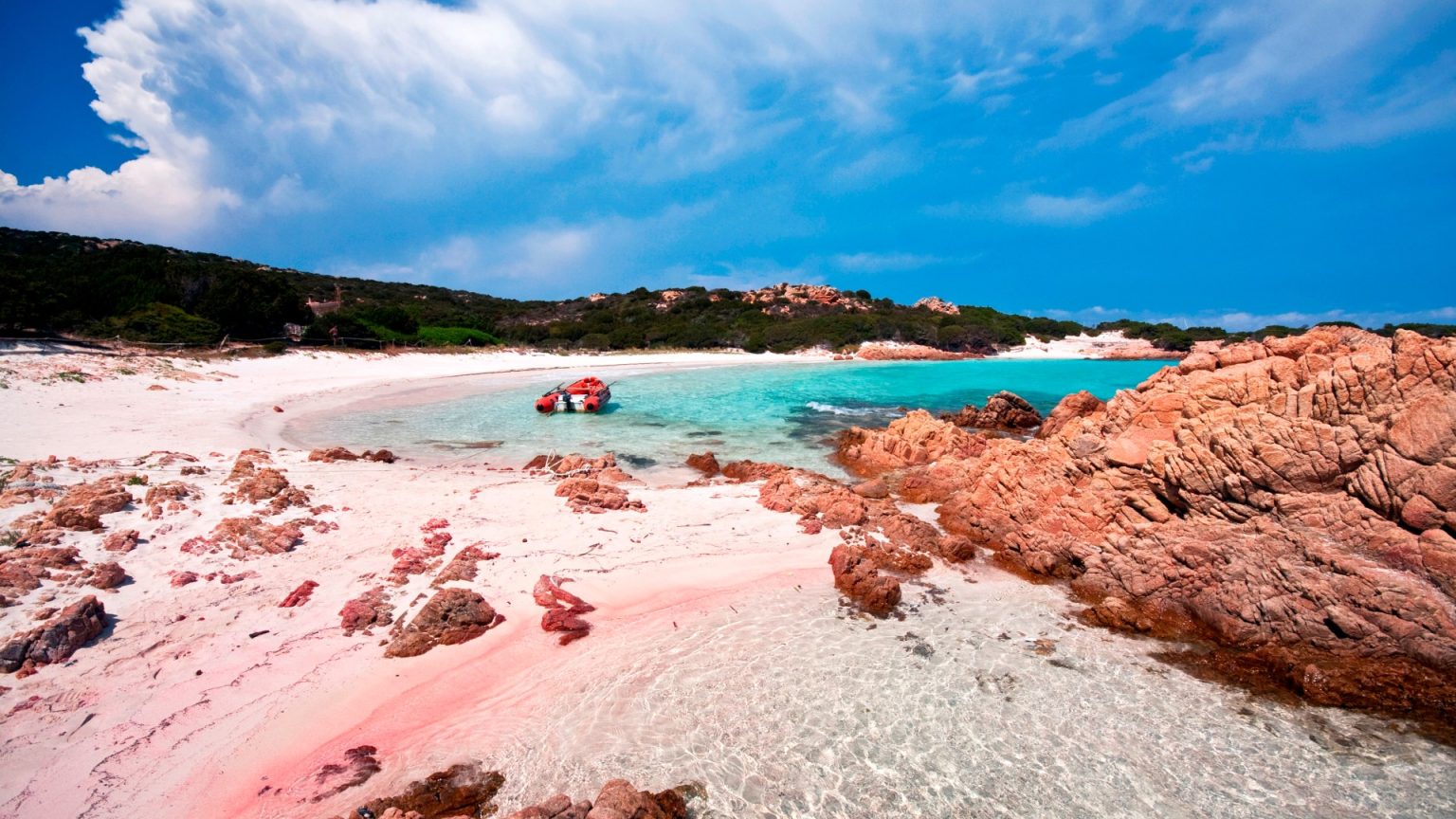Budelli Island, a part of the La Maddalena Archipelago in northern Sardinia, Italy, is home to Spiaggia Rosa, a rare pink beach famed for its unique rosy hue. This secluded island, once inhabited by a solitary caretaker, has become a symbol of natural beauty and the delicate balance between preservation and tourism. For over three decades, access to the beach has been restricted to protect the fragile ecosystem that creates the pink sand, a vibrant color derived from the crushed shells of microscopic organisms. The story of the island and its beach intertwines with the life of Mauro Morandi, nicknamed “Robinson Crusoe,” who served as its caretaker for over 30 years.
Morandi’s unexpected arrival and extended stay on Budelli began with a broken catamaran en route to the South Pacific. He adopted the role of caretaker, residing in a repurposed WWII shelter and utilizing a self-made solar system to power his modest necessities. Despite his long tenure, Morandi was evicted in 2021 by the national park authority and subsequently passed away. His story adds a layer of human interest to the island’s narrative, highlighting the draw of its unique environment. His planned relocation to the nearby island of La Maddalena underscored his deep connection to the sea, a constant in his life despite the upheaval.
The ban on tourists stepping foot on Spiaggia Rosa was implemented in the early 1990s to counteract the detrimental effects of overtourism. The constant foot traffic and souvenir collecting were gradually diminishing the beach’s distinctive pink shade. The restriction has proven successful, allowing the delicate balance of nature to restore the sand’s vibrant color. The micro-organisms responsible for the pink hue have thrived in the absence of human interference, returning the beach to its former glory. However, new challenges have emerged in the form of unauthorized day-trippers, posing a renewed threat to the fragile ecosystem.
Despite the ban, the allure of the pink beach continues to draw visitors, and authorities grapple with enforcement. Boat tours around the Maddalena Archipelago are permitted, offering glimpses of the beach from the surrounding waters. However, landing on the island remains prohibited. The national park authorities actively monitor for illegal landings, utilizing social media posts as evidence to issue fines. The penalties for violating the ban can be substantial, ranging from hundreds to thousands of Euros, emphasizing the seriousness of protecting this delicate environment. The fines also extend to collecting sand, a practice that further depletes the unique natural resource.
The story of Spiaggia Rosa transcends its geographical location, serving as a microcosm of the broader challenges faced by natural wonders worldwide. The delicate balance between accessibility and preservation is a constant tension. While tourism can provide economic benefits, uncontrolled access can irrevocably damage the very attractions that draw visitors in the first place. The case of Budelli Island and its pink beach underscores the importance of responsible tourism and the need for effective measures to safeguard vulnerable ecosystems. The ongoing efforts to protect Spiaggia Rosa offer valuable lessons in environmental stewardship and the long-term sustainability of natural treasures.
While Spiaggia Rosa stands out for its unique pink sand, similar natural wonders exist in other parts of the world, including surprisingly, a few locations in the UK. These beaches, such as Paignton Beach on the English Riviera, derive their pink hues from different geological processes, specifically the oxidation of iron minerals. The existence of these alternative locations offers opportunities for experiencing the beauty of pink sands without contributing to the pressures on the fragile ecosystem of Budelli Island. They serve as a reminder that natural beauty exists in many forms and that exploration and appreciation can coexist with conservation. The story of Spiaggia Rosa provides a valuable case study in the ongoing dialogue about balancing human access with environmental protection.


